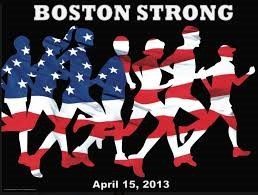 “Build for your team a feeling of oneness, of dependence on one another and of strength to be derived from unity.”
“Build for your team a feeling of oneness, of dependence on one another and of strength to be derived from unity.”
Vince Lombardi
Several years ago the U.S. Army unveiled its newest advertising campaign. You may remember it. The TV commercial showed a soldier running alone across the desert, carrying a backpack but no rifle. Helicopters swoop overhead. A squad of soldiers runs past, moving in the direction opposite of the lone runner. Voiceover: “Even though there are 1,045,690 soldiers like me, I am my own force. . . . The might of the U.S. Army doesn’t lie in numbers. It lies in me. I am an Army of One.”
For those of us serving in the military, this seemed a particularly odd recruiting slogan. With very few exceptions, the image of a warrior acting alone is far from the reality we either espouse or embrace. Our strength, we know, is in the team working together toward a common goal.
The idea that we are stronger together is reinforced every day in the military. Take, for example, even some of the more mundane practices, such as parade-ground drills, formation runs, and training projects geared to collective problem solving. All of these activities are intentionally designed to reinforce that every individual is simply one part of a larger group at work. Be it a squad, flight, platoon, company, squadron, battalion or wing. No one who chooses to wear the uniform of the nation ever feels as though they fight alone—testimony to how we are better, together.
The events we have watched unfold in Boston this week following the deadly bombings at the Boston Marathon have reinforced the fact that there is tremendous power in numbers—in everyone giving their best to support a cause worth fighting for.
Within seconds of the detonation of the bombs that claimed several innocent lives and injured scores of others, the world watched citizen leaders of all walks of life quickly spring into action. Pushing away debris and providing aid to the injured, common people working alongside dedicated emergency medical technicians, fireman and policeman demonstrated courage, compassion and above all, leadership. Each exemplified these superior qualities in their willingness to set aside any thought of self-interest and selflessly serve those who needed their help in that moment. All, I’d like to remind you, without knowing if further detonations would ensue.
But the inspiring lessons of Boston don’t simply stop there. You see, within moments of the tragedy local, state and federal law enforcement professionals began working together to identify and apprehended those responsible for the attack. All while doing everything in their power to protect the city’s population from any further danger. In the seventy-two hours following the bombing, the world was riveted as these amazing professionals each contributed their unique strengths to piece together small shreds of evidence that ultimately led to their not only identifying those they suspected were responsible for the attack, but successfully tracking, engaging and ultimately terminating these suspects’ brief reign of terror.
As a lifelong military officer who has had the privilege of serving with the finest of warriors in both peace and war, I can tell you I’ve witnessed no finer example of teamwork, perseverance, and professionalism, than what I watched unfold this week in Boston. As an America citizen, I am as proud as I’ve ever been to call this great country home. Not because of the quality of life we enjoy compared to many across the globe; but because of the quality of the people I am fortunate to be surrounded by each and every day. Fellow citizens who are willing to give their best, to lend their special strength to serve those around them when their contributions are needed most.
As for the rest of the story behind the “Army of One” slogan—after a short time the Army’s senior leadership recognized they missed the mark. In early October of 2006, they unveiled a replacement slogan: “Army Strong;” which was designed to convey the idea that joining the Army will help someone gain not only physical and emotional strength, but strength of character and purpose as well. It is, in many ways, more congruent with one of the timeless truths found in the great wisdom book, Ecclesiastes. Specifically, how “Two are better than one, because they have a good return for their labor: if either of them falls down, one can help the other up. But pity anyone who falls and has no one to help them up.”
I love this quote because it serves as a three thousand year old reminder that we are never as strong alone as we are when we do as the citizens of Boston have this week and willfully join our efforts to those of others in a cause worth fighting for. So the next time you find yourself acting like an Army of One, I’d ask you to pause and reflect on the lessons of the recent tragedy turned triumph in Massachusetts and remember: True strength isn’t something you simply find within you. It’s something you discover around you—when you selflessly give your best to become better, together.

Pingback: Leading Through Tragedy – Part 1 – Lead High Performance | Col Mickey Addison 23Mar2020 (Mon) @ 0923CDT
[…] it’s the leader’s responsibility to create an environment for that trust and then nurture it. When tragedy strikes the team, it’s the work the leader and the team put in over time that will e… That sort of resilience, both personal and organizational, isn’t born in the moment; it’s […]